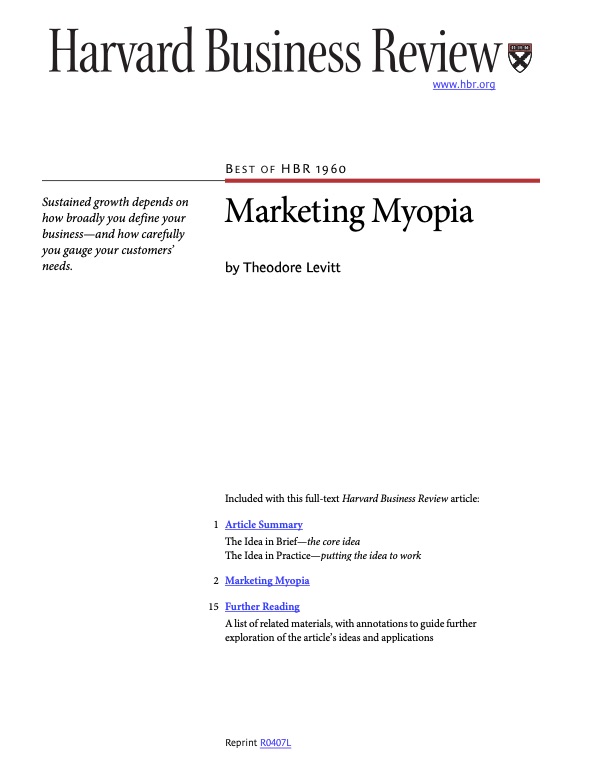Marketing Myopia
Written in 1960 and reprinted a few times, Levitt’s Marketing myopia has several key lessons. Levitt’s myopia is the short-sighted focus that organisations can have. Their belief that they are in a growth market and lack of focus on what customers want eventually lead to their failure.
They key insight for me, in terms of innovation, is that you need to frame the business you are in correctly.
- From the original paper:
- Are you in the railroad business (narrow focus – a myopia) or the transportation business (a wider focus that would have allowed US railroad companies to grow into running flights)?
- Are you in the oil business (a narrow focus) or the energy business?
- A couple of more modern ones:
- are you in the business of providing petrol to car owners, or in the business of providing means of resupplying energy to transportation devices (thus having petrol, LNG, Electric charging points at your service stations)
- are you in the business of providing music on vinyl/CD or in the business of enabling the end user to listen to a wide variety of music wherever they are?
Levitt posits that there is no such thing as a growth industry. And that we deceive ourselves in 4 ways:
- “The belief that growth is assured by an expanding and more affluent population
- The belief that there is no competitive substitute for the industry’s major product
- Too much faith in mass production and in the advantages of rapidly declining unit costs as output rises
- Preoccupation with a product that lends itself to carefully controlled scientific experimentation,improvement, and manufacturing cost reduction”
He looks at each of those 4 ways through the lenses of the petroleum, automobile and electronics industries.
To me it also ties with Drucker’s comments that “a firm exists to create a customer” and as such it has “two, and only two functions: innovation and marketing”. Also, as we move towards service economies the “job-to-be-done” theory becomes clearer to understand: what is the customer hiring us (our service) to do? Shall we be myopic in our answer or wider reaching?

